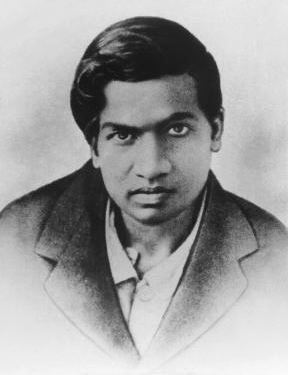Śrīnivāsa Rāmānujan: Difference between revisions
From Vigyanwiki
(Content Modified.) |
(Content Modified.) |
||
| Line 1: | Line 1: | ||
[[File:Srinivasa Ramanujan - OPC - 2 (cleaned).jpg|alt=Srinivasa Ramaujan|thumb|Srinivasa Ramaujan]] | |||
'''Srinivasa Ramanujan''' born '''Srinivasa Ramanujan Aiyangar''', 22 December 1887 – 26 April 1920) was an Indian mathematician who lived during the British Rule in India. Though he had almost no formal training in pure mathematics, he made substantial contributions to mathematical analysis, number theory, infinite series, and continued fractions, including | '''Srinivasa Ramanujan''' born '''Srinivasa Ramanujan Aiyangar''', 22 December 1887 – 26 April 1920) was an Indian mathematician who lived during the British Rule in India. Though he had almost no formal training in pure mathematics, he made substantial contributions to mathematical analysis, number theory, infinite series, and continued fractions, including | ||
Revision as of 12:22, 7 February 2022
Srinivasa Ramanujan born Srinivasa Ramanujan Aiyangar, 22 December 1887 – 26 April 1920) was an Indian mathematician who lived during the British Rule in India. Though he had almost no formal training in pure mathematics, he made substantial contributions to mathematical analysis, number theory, infinite series, and continued fractions, including
The number 1729. It is known as Ramanujan number. It is the smallest number which can be expressed as the sum of two cubes in two different ways.
1729 = 13+ 123= 93+ 103
